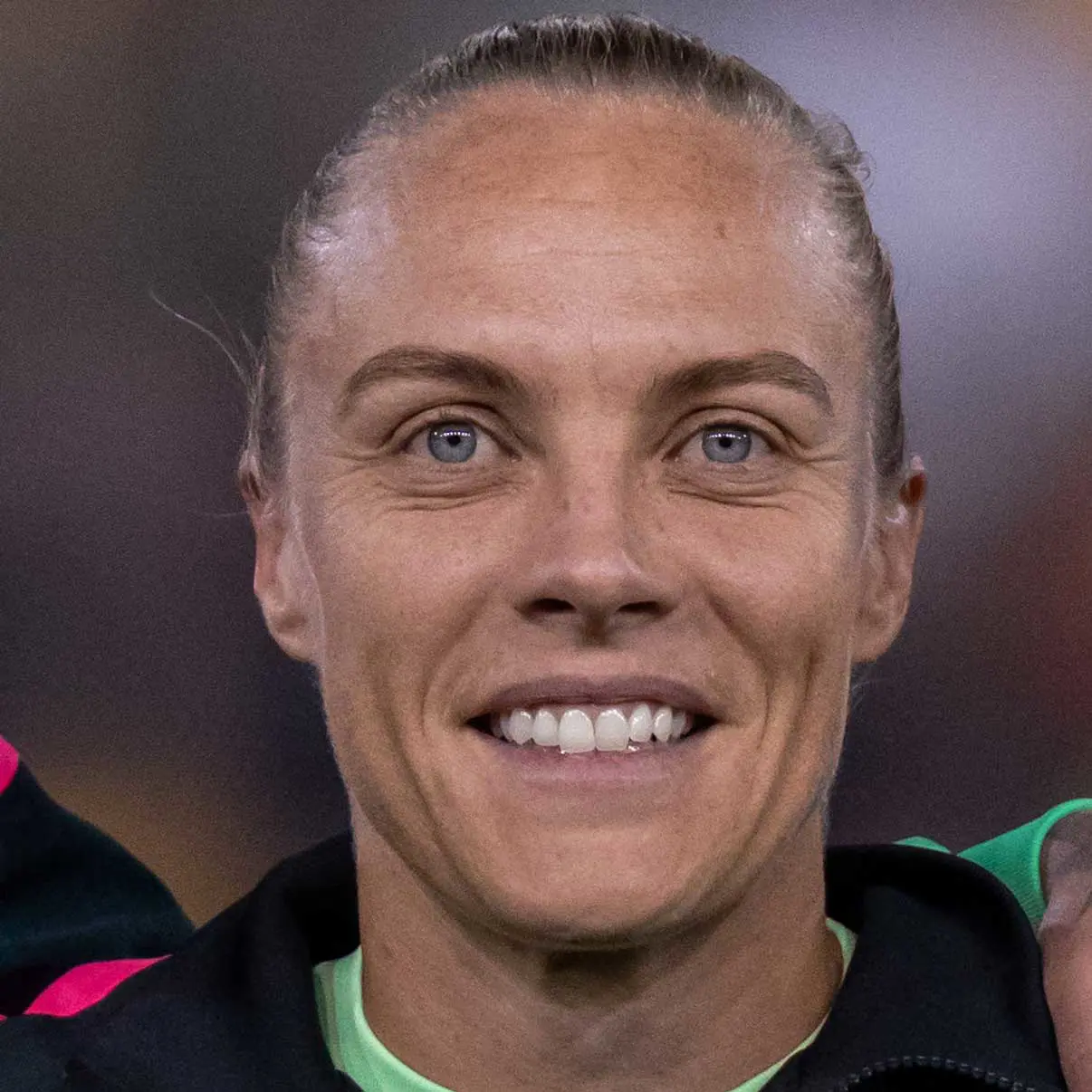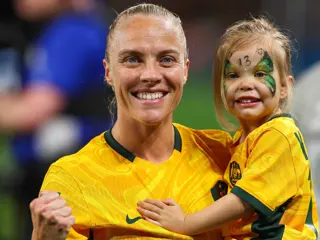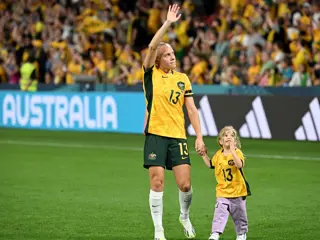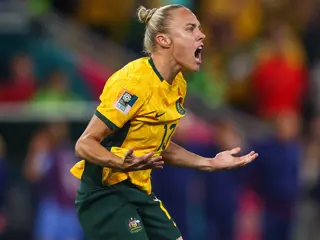Player Op-Ed
Tameka Yallop: "Talk to any Matilda, any Socceroo – we all want equal conditions at next World Cup"
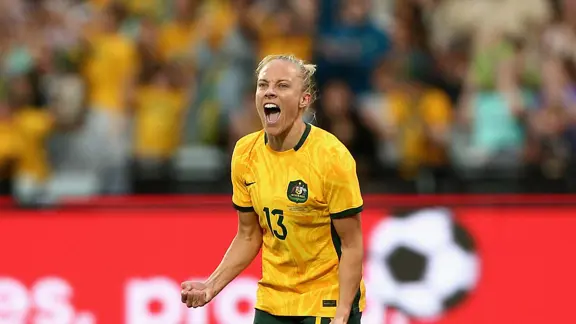
To mark one year since the 2023 Women’s World Cup, players around the world are detailing how improved conditions and prize money at the tournament changed women’s international football, and why players and unions should push for equality at the 2027 Women’s World Cup. Australia midfielder Tameka Yallop, a veteran of four World Cups, shares her views.
By Tameka Yallop
Never in my career as a footballer did I think Australia and New Zealand would host the World Cup. I remember the day we won the host bid; it was truly amazing. In the back of our minds, we knew that was the start of something big for football in Australia and New Zealand.
Leading into the World Cup, we tried to make it as inclusive as possible, but especially for the younger and older generations. We've experienced a significant growth period of women's football in Australia, and we wanted to thank the generation that came before us, who put in the hard yards to get us to where we are today, and who themselves were not afforded progression pathways. And, of course, we wanted to look ahead to the younger generations, the future of football in this country.
The 2023 World Cup was a record-breaking World Cup and the most-attended women’s sporting event ever. It was also a game changer for the players, who successfully pushed for improved – and fair – prize money and conditions.
The year before the World Cup, the Matildas and other national teams signed a letter sent to FIFA calling for improved prize money and conditions. It was in the works for a long time and was something we wanted to pursue when the time was right. The Australian PFA was heavily involved in the process. The player union has been at the forefront of driving standards, not just for women's football, but for our men and across borders too.
After that hard work behind the scenes, the improved conditions and prize money was confirmed by FIFA shortly before the tournament. For me, the improvements to the training facilities were huge. At tournaments you spend a lot of time using those facilities, whether that's the gym, pitches or recovery rooms, and having proper ones with high-performance attributes definitely helped raise the level of competition.
Recovery is so important in tournament football, so even subtle things such as access to ice baths make a big difference; in the past sometimes we’ve had to hop in a big bin and fill it with water and ice.
There was also the standard of hotels, being able to have your own room, and even family being able to come to the hotel. There was a lot more access for family at this World Cup and that does go a long with players to have that comfort when we are in such a high-pressure environment.
We put in a lot of unpaid hours and the prize money we won was almost like a back payment for all the hard years we put in
The improved prize money, which was distributed based on team performance at the tournament, also made a huge difference. It was life changing for me, and I know it was for many of the Matildas too. Some have been able to pay off university debts and some have been able to put down a deposit on a mortgage.
Club salaries in women’s football are not as high as the men's leagues, so it gave me a little bit of a safety net. It also allowed me to reinvest back into my football – different training avenues, recovery equipment, nutrition – so I can keep improving.
We do put in a lot of unpaid hours and the prize money that we won was almost like a back payment for all the hard years we have put in. A lot of us have gone through the same football journey next to male counterparts and the men have had the means to invest into real estate or just live comfortably. While they have been achieving that for a long time, the women’s players never really had that stability. To be able to do that now, it does feel like a win for us.
I'm always pushing for equality, so for the next Women’s World Cup in 2027, I would like to see us go a step further and have equal standards to the men. If you talk to any Matilda, talk to any Socceroo, they are all united in pushing for that.
The way the women's game is and the exciting competitive football that we do play on the world stage deserves equality, as does the grassroots and the next generations coming through.
